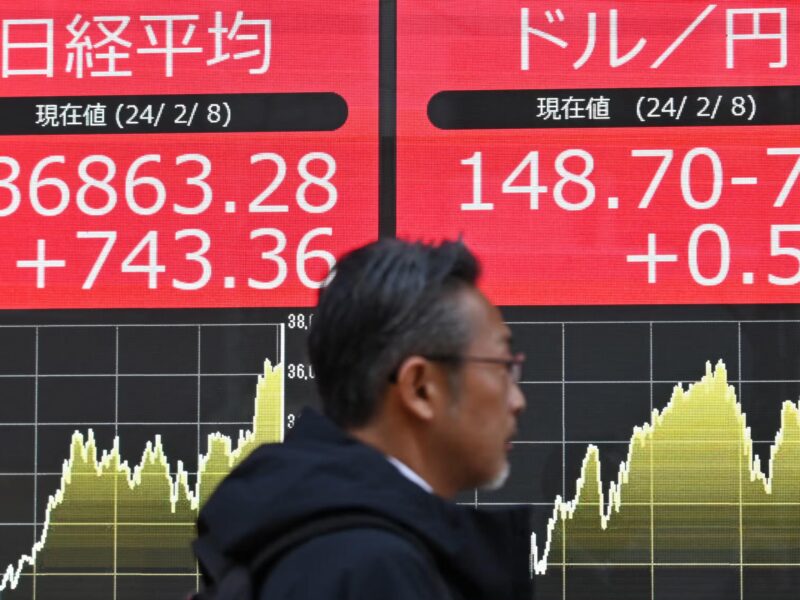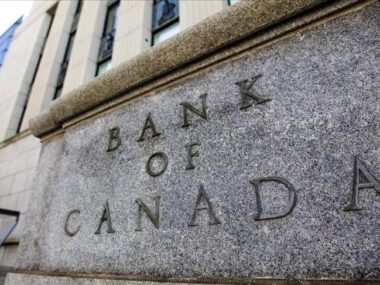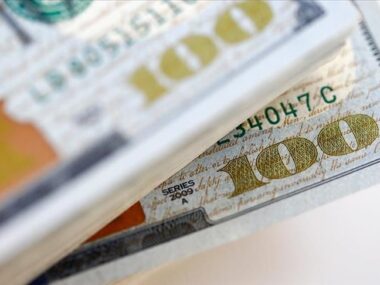The drop in rank below Germany has been linked to a weak yen and the country’s aging, decreasing population.
Japan has lost its position as the world’s third-largest economy to Germany and has entered a recession, according to data released Thursday, as the country struggles with a weak currency and an ageing, decreasing population.
Japan’s economy, now the world’s fourth-largest, expanded 1.9% in nominal terms in 2023 (unadjusted for inflation), but in dollar terms, its GDP was $4.2 trillion, compared to $4.5 trillion for Germany.
The turnaround, which comes more than a decade after it lost second place to China, has been ascribed to the yen’s significant decline against the dollar during the last two years. A weaker yen reduces export profits when earnings are repatriated. The Japanese yen fell by over a fifth versus the US dollar in 2022 and 2023, including a 7% decrease last year.
Germany, like Japan, is resource-poor, has an ageing population, and relies significantly on exports. Europe’s largest economy has also been jolted by rising oil prices as a result of Russia’s war in Ukraine, rising eurozone interest rates, and a chronic labor shortage.
While a weak yen has benefited Japanese carmakers and other exporters by making their goods more affordable on the international market, the country’s labor shortage is worse than Germany’s, and it is trying to overcome a low birthrate.
The failure of government-led efforts to increase birthrates is anticipated to exacerbate chronic labor shortages, even as the country accepts a record number of foreign workers.
Yoshitaka Shindo, the economy revitalisation minister, told reporters that Germany’s leapfrogging of Japan demonstrated the “imperative” of promoting structural reforms, such as increasing the number of women working full-time and eliminating obstacles to foreign investment.
“We will deploy all policy steps to support pay rises” to encourage demand-driven growth, Shindo stated, according to Kyodo news agency.
According to Thursday’s figures, real GDP – the entire value of goods and services – fell 0.1% in the last three months of 2023 compared to the previous quarter, owing to low expenditure by consumers and companies.
Private consumption, which accounts for more than half of total economic activity in Japan, declined 0.2% as consumers grappled with rising living costs and declining real wages.
Growth in the preceding quarter was also revised lower to -0.8%, indicating that Japan is in a technical recession, which is defined as two consecutive quarters of contraction.
During the boom years of the 1970s and 1980s, some projected that Japan’s low-cost, high-quality auto and consumer electronics exports would propel it beyond the United States as the world’s largest economy.
Instead, Japan’s asset-inflated bubble economy popped in the early 1990s, ushering in many “lost decades” of economic stagnation and deflation.
According to Tetsuji Okazaki, an economics professor at the University of Tokyo, the most recent figures reflect the realities of a weakened Japan, which may anticipate to have a smaller role in the global economy. “Several years ago, Japan had a strong auto industry, for example. But, with the introduction of electric vehicles, even that edge has been eroded,” he noted.
In 2010, China’s new status as the world’s second largest economy caused Japan to reflect on its capacity to stay up with rising economies.
While Japan’s recent drop to fourth place has been attributed to major currency movements, losing third place to a struggling German economy will be a blow to its self-esteem and the already unpopular prime leader, Fumio Kishida.
And the slide is unlikely to stop there. The International Monetary Fund predicts that India’s economy, bolstered by a huge and increasing young population, would surpass Japan in 2026 and Germany the following year.
In a recent editorial, the Nikkei business newspaper stated that Japan had failed to increase its economic potential, which economists attribute to the country’s demographic crisis.
“This situation should be taken as a wake-up call to accelerate neglected economic reforms,” the Japanese news agency Nikkei reported.











